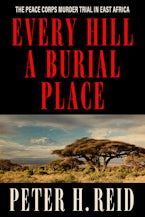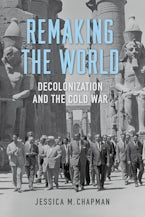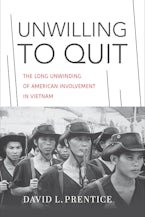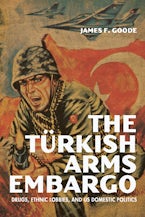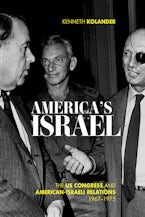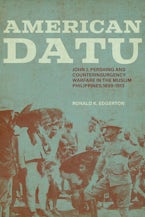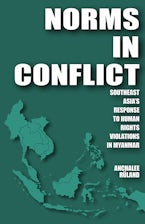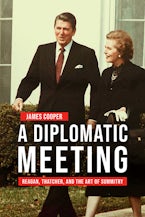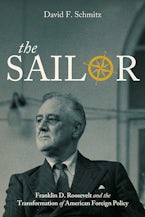Every Peace Corps volunteer has a story to tell. Few, however, are as surprising and suspenseful as this one.
~John Coyne, novelist and former Peace Corps staff (Ethiopia)
Every Hill a Burial Place combines the suspense of a fictional legal thriller with a fascinating look at the early days of the Peace Corps in Africa. I enjoyed it as a former criminal defense attorney, a writer of legal thrillers, and a former Peace Corps volunteer who served in Africa at the time of the trial.
~Phillip Margolin, New York Times bestselling author of A Reasonable Doubt and a former Peace Corps volunteer (Liberia, 1965–1967)
The violent death of a Peace Corps teacher in Tanzania has shocked, saddened, and perplexed the Peace Corps community for more than fifty years. Was Peppy Kinsey's death a horrific accident, or did her husband, Bill, batter her to death, as some African witnesses claimed? Exhaustive, coherent, thoughtful, and suspenseful, Reid's account of the Kinsey murder trial and its aftermath could well be the final word on this dark event—unless, of course, this remarkable book triggers new revelations.
~Richard Lipez, author of the Donald Strachey series and former Peace Corps teacher (Ethiopia, 1962–1964)
Peter Reid has written a meticulously researched and fascinating true story about the ambiguous death of a female Peace Corps volunteer in Tanzania in the 1960s and the subsequent prosecution of her husband, a fellow Peace Corps volunteer, for murder. Equally compelling is the backstory about a range of issues receiving intense local and worldwide attention, including calls to "send in the Marines" to rescue the accused, an apparent lack of concern about justice for the deceased, and the perception of special treatment for a white American in a newly independent African nation.
~Skip McGinty, 1960s Peace Corps Africa Volunteer and Peace Corps Country Director, Oman
Peter Reid transforms the gripping story of a Peace Corps volunteer death and the acquittal of her husband into an epic study of the Peace Corps from its first days during the Kennedy administration to the present. And, the fact that he successfully places this human tragedy within the complicated and troublesome days of the Cold War and after makes the book a stunning achievement. It is an amazing, suspenseful report about two young American volunteers in Tanzania that also deepens our understanding of the Peace Corps, America, and their entangled history for the last six decades.
~David Rudenstine, dean emeritus of the Benjamin N. Cardozo School of Law at Yeshiva University and author of The Day the Presses Stopped and The Age of Deference
An authoritative analysis of a personal tragedy in Tanzania that threatened the survival of the Peace Corps in its earliest days. The stakes could not have been higher, and Reid captures with great skill the impact of a complex family drama on the Corps and its relationship with a host country.
~Carol Bellamy, former director of the Peace Corps and former executive director of UNICEF
Peter Reid's account of the 1966 Tanzanian murder trial of Peace Corps volunteer Bill Kinsey is suspenseful and gripping. It is also a careful, judicial examination of the difficulties the Peace Corps faced in balancing its responsibilities to the deceased, the accused, and to US relations with Tanzania. Both the research and presentation are masterful.
~John Hamilton, former US ambassador to Peru and Guatemala
Reid offers the definitive look at a now-obscure 1960s murder trial that threatened the future of the Peace Corps. In 1966, Bill Kinsey became the first program volunteer to be accused of murder after his wife, Peppy, died from head wounds while the two were serving in Tanzania. Bill claimed that Peppy had fallen from a hill, but witnesses said they'd seen the couple fighting before her death, and a blood-stained iron bar and stones were found nearby. Bill was supposed to be afforded the same legal protections as an ordinary citizen of the country, but the prosecution was overmatched by the experienced, mostly white defense team that his family arranged, which got him acquitted... Excellent.
~Publishers Weekly
Peter Reid...has done a superb job in laying out this international drama. He is consistently fact-based, and judicious in his judgments. This is not a pot-boiler or an accusatory effort: it is a fine piece of history of an unlikely event at a fascinating time and place when both the Peace Corps and the Republic of Tanzania were trying to find their way forward.
~Peace Corps Worldwide
A fascinating read of a Peace Corps death with potential international implications. Was it a murder or an accident? How should the Peace Corps manage this death where one volunteer was charged with killing another? Could the whole Kennedy Era program be in jeopardy? And most critically, was justice done? Peter Reid's meticulously researched book presents a readable, balanced and critical analysis that sheds light on a baffling death and also gives us a picture of the lives and work of early Peace Corps volunteers in Africa. I highly recommend this book for its historical insights and its reminder that justice is often about who has the best lawyer. A compelling read.
~John Frohnmayer, former chairman of the National Endowment for the Arts
Both a movie-ready legal thriller and a study of two cultures brought together to decide a single question.... Peter Reid... has done a superb job in laying out this international drama. He is consistently fact-based and judicious in his judgments.... It is a fine piece of history of an unlikely event at a fascinating time and place when both the Peace Corps and the Republic of Tanzania were trying to find their way forward.
~The Foreign Service Journal
